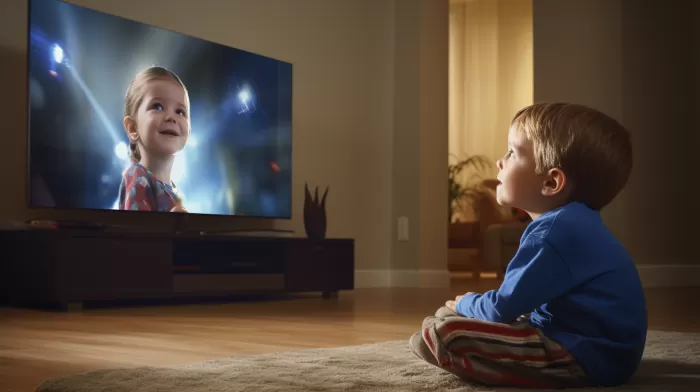If you share the belief that kids’ television has negative effects on children’s brains and behaviors, you’re on the same page as a group of psychologists. They suspect that children’s television shows promote values that contribute to the development of self-centered and egocentric individuals. In fact, these concerns are supported by a study conducted at the University of California Los Angeles (UCLA).
Fame Takes The Lead
UCLA researchers scrutinized popular television shows that catered to 9- to 11-year-olds. The study examined values conveyed by these programs, ranking the recurrent themes in terms of prominence. In an alarming revelation, the study found that by 2007, the value of fame escalated from the 15th spot to the number one spot. To offer a reference, fame retained the 15th spot in both 1987 and 1997. During the same decade, being kind and helping others – or benevolence – plummeted from 2nd to 13th place, while tradition plunged from 4th to 15th place.
Yalda T. Uhls, a UCLA doctoral student in developmental psychology and lead author of the study, expressed shock at the significant changes detected in just ten years. She admits that although she expected fame to be crucial, she did not anticipate such dramatic progressions and declines. Uhls holds the view that television mirrors society. If this is true, it implies that American culture has transformed radically.
Shifting Value Systems
By 2007, fame, achievement, popularity, image, and financial success emerged as the top five values on children’s television platforms. Comparatively, the leading values in 1997 were community feeling, benevolence, image, tradition, and self-acceptance. Benevolence ranked 12th in 2007, while community feeling dropped to 11th place. A stark departure from 12th place in both 1967 and 1997, financial success climbed its way to 5th place in 2007.
Uhls points out that preteens share a universal aspiration for popularity, much like the famous young figures portrayed on television and the internet. With the abundance of internet celebrities and reality TV stars, fame may seem attainable to anyone without the prerequisite of hard work and talent.
The implications of these value shifts are concerning: when fame and wealth take precedence over empathy and kindness, the development of children’s identities and value systems is compromised.
In light of these findings, it is crucial to monitor the content that children consume on television and other media platforms. Although children should remain abreast of societal and technological advances, they must also be instilled with a solid foundation of moral values so as not to compromise their character development.
Encouraging Benevolence
One approach parents can consider is to deliberately promote benevolence and kindness at home, in an attempt to counteract the self-centered values showcased on television. Encourage your children to participate in community service or engage in acts of kindness. Being involved in volunteer work can help kids feel a sense of belonging to their community, while exposing them to real-life challenges faced by others. This involvement can significantly contribute to their sense of empathy and understanding.
Furthermore, encourage your children to join groups or clubs where they can build social connections, such as sports teams, scouting organizations, or school clubs. These activities provide opportunities for personal growth and character development, fostering resilience and adaptability.
Responsible Media Consumption
A healthy balance of media consumption is vital in shaping the values and character of young children. Familiarize yourself with the content of your child’s television shows, and steer them toward programs that offer valuable life lessons in tandem with entertainment. Shows that focus on compassion, teamwork, and problem-solving equip children with the tools to handle the obstacles they may face throughout their lives.
In conclusion, even though television content has shifted toward self-centered values, it remains in the hands of parents and caregivers to implement a healthy balance for their children. By offering alternatives and emphasizing the importance of community involvement and compassionate behavior at home, it’s possible to instill the right foundation of values that benefit our children – and society – in the long run.



